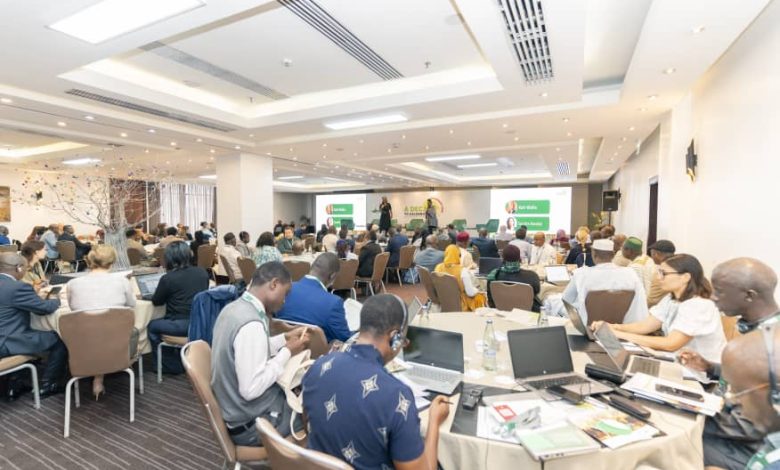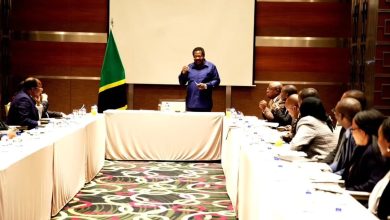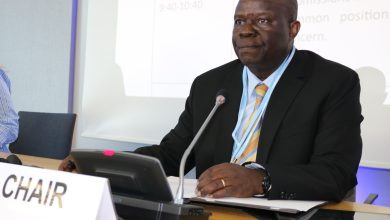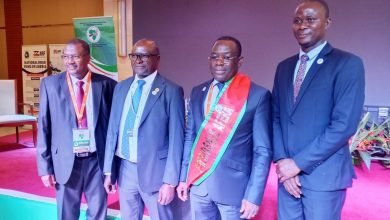Africa’s future depends on teamwork, not solo acts

AFRICA: WHAT Africa truly needs is good old-fashioned teamwork, especially if the continent is to achieve meaningful self-reliance across crucial areas. Here, let us be real: countries tackling these issues one by one is like taking chances or simply trying to herd cats. Unity is the game-changer.
In reality, every African nation would benefit enormously from harmonised strategies, especially when it comes to safeguarding food security. A big part of the problem? Land is under pressure and that is to say conflicts over double (or triple) allocations and tensions between pastoralists and farmers are rampant across regions. These disputes are not just local squabbles; they strike at the heart of stability and food production across the continent.
Again, African nations should try to digitise to minimise land mischief. Here, talk to anyone in land governance and they will shout the same mantra: digitise everything. During a recent workshop in Addis Ababa, celebrating a decade of the “Strengthening Advisory Capacities for Land Governance in Africa” (SLGA) programme, stakeholders made it clear: digital land systems are the antidote to shady double allocations and rampant corruption among land officials.
This SLGA initiative, initiated in 2014, is steered by Germany’s Federal Ministry for Economic Cooperation and Development (BMZ) and implemented by GIZ. Its mandate? To bolster land governance across Africa, transforming food systems and agriculture in the process.
Equally need to be addressed is land disputes, which are development’s kryptonite. Expounding, Dr Patrick Opoku from Kwame Nkrumah University of Science and Technology in Ghana shared that his students’ research clearly shows how such land disputes stymie Africa’s progress. When climate change causes droughts, livestock roam beyond borders in search of pasture causing crop damage, violence and disruption of food supply itself.
The finding is that cooperation makes drought less dramatic. Dr Opoku suggested a neat solution: cooperation that is for real this time. African countries should share water resources and irrigation technology. Picture this: countries trade minerals for technologies and other countries supply irrigation systems and the gifts keep flowing. Win-win. The grain farms flourish, animals eat and food security gets a boost. Way better than finger-pointing.
The next thing to address is ‘Zone It Right’ that is to designate land for its best use. Here, his team’s research also recommends thoughtful land zoning: assign parcels for farming, mining, reforestation no free-for-all. Consider miners who move around and disrupt farms. If mineral deposits are found in farmland, swap spaces, but with safeguards! After mining, plant chemical-absorbing flora on the old mine sites before letting farmers back in. That way, toxins get cleaned up and the soil can go back to raising crops.
Unfortunately, enough a group of implementors (women) must be empowered and not grounded. Elaborating, Dr Addis Teshome, who coordinates the Land Governance Unit at IGAD, wants land policies to be gender responsive.
For example, a two-year project, “Enhancing gender equality in access to land resources for transformative climate change adaptation in the IGAD Region’’ with funding from the Africa Climate Change Fund (ACCF) of the African Development Bank. It highlights what we all know: women are already on the frontlines farming, tending livestock, gathering water and fuel. Still, they often lack formal land ownership.
Recognising their efforts with land rights is not just fair, it is smart. The project is helping women plant trees, not only to protect the environment but to feed livestock (via silage) and provide fruit for nutrition. These multipurpose trees help reduce the hours women spend searching for pasture and firewood.
Another group is the youth who deserve their patch of dirt. Here, Mr Emmanuel Njavike of Hello Africa Consults wants new land policies to reserve spaces specifically for youth. Why? Land scarcity drives young people to flee rural areas for cities, only to struggle jobless. If youth can have land where they also participate in decision-making rural productivity will increase and Africa’s land will remain in African hands. Investors can get access, but not ownership.
On the same note, African nations must empower local leaders through training. Elaborating, Dr Agness Mwasumbi of Ardhi University in Tanzania reported that SLGA has been training local leaders, especially to champion land equity for women, youth and persons with disabilities. So far, some 1,200 leaders in nine districts from Ilemela in Mwanza to Shinyanga, Lindi, Mbeya, Geita, Coast and beyond have been reached.
Across the continent, SLGA has: Developed continental guidelines for land governance curricula; Created a toolkit to apply them; Reviewed 30 land governance programmes in 23 countries.
The list further mentioned initiating 80 plus research projects in 43 countries; Influenced policy in 10 African countries; Supported development of five National Agriculture Investment Plans and published 11 Land Governance Assessment Frameworks in partnership with the World Bank and trained around 2,500 land professionals (45 per cent of whom are women) via short courses including one on Political Economy of Land Governance, tackling tenure, rights and gender issues.
On the ground, there should be talk to action, not just theory-take recent events: In June 2025, an IGAD-backed national dialogues in six member States focused on Gender, Land and Climate Resilience, gathering parliamentarians, civil society, policymakers to craft inclusive land policies aligned with continental and global frameworks such as Agenda 2063 and the SDGs.
In May–June 2025 in Morogoro, Tanzania, SLGA facilitated a workshop aligning land governance with the country’s climate ambitions. They reviewed the second Nationally Determined Contribution (NDC 2.0) and built a roadmap for NDC 3.0 linking land use, tenure security and climate adaptation with concrete climate targets.
So, what stands between Africa and self-sufficiency? Not rockets or NFTs, but cooperation, some smart tech, respect for women and youth and clear rules laid out digitally. Solve land disputes, build irrigation, let locals lead, allow youth to farm and stop exporting land ownership.
With digitised land records, climate-smart agriculture, gender-sensitive rights and training across the board, Africa can truly take charge of its destiny with a little humour, but a lot of serious intent.





